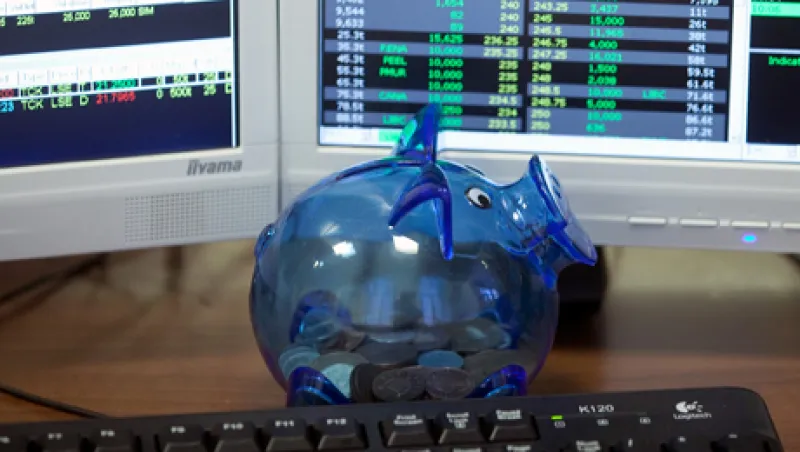After years, if not decades, of reports that U.S. employees don’t save enough for retirement, along comes a new study that appears to show that the minds of American workers have changed: They are now ready to save for retirement and willing to sacrifice to do so — or at least half of them are.
The catch is, they want someone else to do it for them.
In a survey of 9,200 employees at large companies, conducted by the consulting firm Towers Watson last summer and released last month, 53 percent of the respondents said they “would be willing to pay a higher amount out of my paycheck each month for a larger, more generous retirement benefit.” In a separate question, 55 percent said they “would be willing to pay a higher amount out of my paycheck each month to ensure I have a guaranteed retirement benefit,” which the question defined as $1,000 per month.
So if all these people are willing to put more of their paychecks into their 401(k)s, then why don’t they?
Even Kevin Wagner, a senior retirement consultant in Towers Watson’s Atlanta office, admits that the results were “an interesting surprise” and “a sea change.” He and other pension experts variously interpret the findings as proof that people want traditional pensions, want to be automatically enrolled in a defined contribution plan, want a new kind of hybrid pension or just want a perfect retirement plan. In any case, the experts say, employees want their employer to get more actively involved and pull the money out of their paychecks for them.
To make matters more confusing, other polls show contradictory data about whether 401(k) contributions have actually been increasing or decreasing in recent years — in other words, whether people are doing what they say they’re willing to do, or not.
“We all need to learn from this that employees are asking for help,” Wagner sums up. “People are realizing a day of reckoning is coming, and the financial environment in which they have to retire is not the same as 20 years ago.”
The survey didn’t specifically ask how much more respondents would be willing to pay or what sort of benefit they’d pay for, other than the $1,000-per-month guarantee in the second question. Wagner says his firm may add those queries to what he hopes will be annual follow-ups.
In trying to make sense of the survey, most analyses start with the uncontroversial assumption that the recession, unemployment, falling home values, market volatility, and threats to Social Security have made Americans more worried about retirement. “People want more of a guarantee about their future,” says Pamela Hess, director of retirement research at Aon Hewitt, another consulting firm.
Theoretically, employees could buttress their future security by saving more on their own initiative. Mercer, a third pension consulting firm, claims they are doing exactly that. Its annual workplace surveys, with about 1,500 participants in a diverse mix of companies, portray a steady rise in average yearly contributions since 2003, from nearly $5,400 to $7,450 last year. However, Aon Hewitt’s annual poll — which queries more than 2 million people at large plans — indicates the exact opposite trend. Here, the average contribution rate dropped slightly, from 7.9 percent of pay in 2005 to 7.3 percent in 2010. The main reasons, according to Hess and others, are the poor economy, inertia and a particular quirk of auto-enrollment.
“It’s like people say, ‘Yes, I should go on a diet,’ but they don’t,” says Josh Cohen, defined contribution practice leader at Russell Investments.
Both Mercer and Aon Hewitt agree, in any case, that the contribution numbers are eroded by an increase in the amount of money that has been leaking out via loans and hardship withdrawals.
So if people won’t protect their future by themselves, the Towers Watson survey would seem to say, they are begging their companies to make them do it. As Towers Watson’s Wagner sees it, the respondents are saying, “I would like the old-style retirement program where you guys took care of me.” That could mean a return to traditional pensions, a cash balance plan, an annuity option or having the company manage their 401(k) money, he says.
Aon Hewitt’s Hess, meanwhile, reads the survey results as a cry for auto-enrollment in a 401(k). “People have good intentions, but they don’t necessarily know what to save,” she says. “They want to be told what’s the right number.”
But Karen Ferguson, director of the Pension Rights Center, an advocacy group for employees, says people actually want a new type of plan that combines features of defined benefits and defined contributions, not auto-enrollment. While the idea of having the employer get more actively involved isn’t new, she adds, it has been intensified by the economy.
“The notion of having it done for you – you never see the money, it’s automatically taken out [of the paycheck], and in return you get this lifetime guaranteed stream of income — is extremely appealing to a majority,” she says.
And Wagner offers another possible interpretation, focusing on the point about a “larger, more generous retirement benefit.” He quips, “Sure, I’d be more than willing to put in a dollar if you give me a thousand.”





